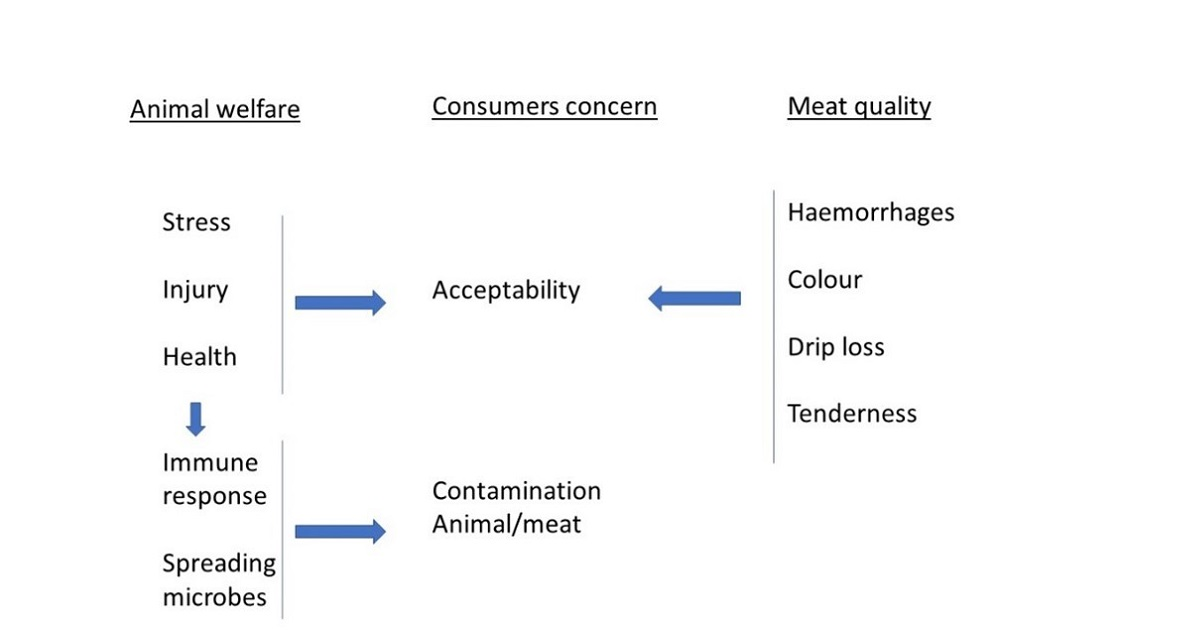Animal Stress and Welfare During Transport and Slaughtering: Second Edition
A special issue of Animals (ISSN 2076-2615). This special issue belongs to the section "Animal Welfare".
Deadline for manuscript submissions: 31 December 2025 | Viewed by 4857

Special Issue Editor
Interests: stress physiology; pain assessment; electronic identification; transport; handling; stunning; euthanasia; welfare
* Retired
Special Issues, Collections and Topics in MDPI journals
Special Issue Information
Dear Colleagues,
There is much discussion about the transportation of farm animals. The main issues are welfare, meat quality, legislation, consumer concerns, and economic aspects. The main hazards identified for transported animals are common for all species. Hazards characterized as serious are inadequate ventilation, insufficient space allowance, transport duration, the lack of appropriate food and water during transport, incorrect handling during (un)loading, poor fitness prior to transport, the introduction of pathogens before and during transport, and the inappropriate application of resting periods during transport. Loading at the farm and unloading at the slaughterhouse have been considered the most stressful preslaughter events.
After arrival, animals need to be placed in a lairage before slaughter. Stress is related to interaction with humans, handling through ramps, steps, and tight spaces, unfamiliar noises and smells, vibrations, ambient temperatures, mixing with unfamiliar animals, and low space allowance.
It is necessary that slaughter animals need to be well restrained for optimal stunning. In a restrainer, animals are stunned by mechanical, electrical, or gas methods. The use of a no-stunning method as an exception is possible for ritual slaughter in some countries. The stun–stick interval and maintenance are relevant for all stunning methods. After stunning, the unconsciousness of the animals needs to be checked.
Dr. Elbert Lambooij
Guest Editor
Manuscript Submission Information
Manuscripts should be submitted online at www.mdpi.com by registering and logging in to this website. Once you are registered, click here to go to the submission form. Manuscripts can be submitted until the deadline. All submissions that pass pre-check are peer-reviewed. Accepted papers will be published continuously in the journal (as soon as accepted) and will be listed together on the special issue website. Research articles, review articles as well as short communications are invited. For planned papers, a title and short abstract (about 100 words) can be sent to the Editorial Office for announcement on this website.
Submitted manuscripts should not have been published previously, nor be under consideration for publication elsewhere (except conference proceedings papers). All manuscripts are thoroughly refereed through a single-blind peer-review process. A guide for authors and other relevant information for submission of manuscripts is available on the Instructions for Authors page. Animals is an international peer-reviewed open access semimonthly journal published by MDPI.
Please visit the Instructions for Authors page before submitting a manuscript. The Article Processing Charge (APC) for publication in this open access journal is 2400 CHF (Swiss Francs). Submitted papers should be well formatted and use good English. Authors may use MDPI's English editing service prior to publication or during author revisions.
Keywords
- slaughter animals
- welfare
- meat quality
- legislation
- consumers concern
- movement
- handling
- economic aspects
Benefits of Publishing in a Special Issue
- Ease of navigation: Grouping papers by topic helps scholars navigate broad scope journals more efficiently.
- Greater discoverability: Special Issues support the reach and impact of scientific research. Articles in Special Issues are more discoverable and cited more frequently.
- Expansion of research network: Special Issues facilitate connections among authors, fostering scientific collaborations.
- External promotion: Articles in Special Issues are often promoted through the journal's social media, increasing their visibility.
- Reprint: MDPI Books provides the opportunity to republish successful Special Issues in book format, both online and in print.
Further information on MDPI's Special Issue policies can be found here.
Related Special Issue
- Animal Stress and Welfare During Transport and Slaughtering in Animals (12 articles)






